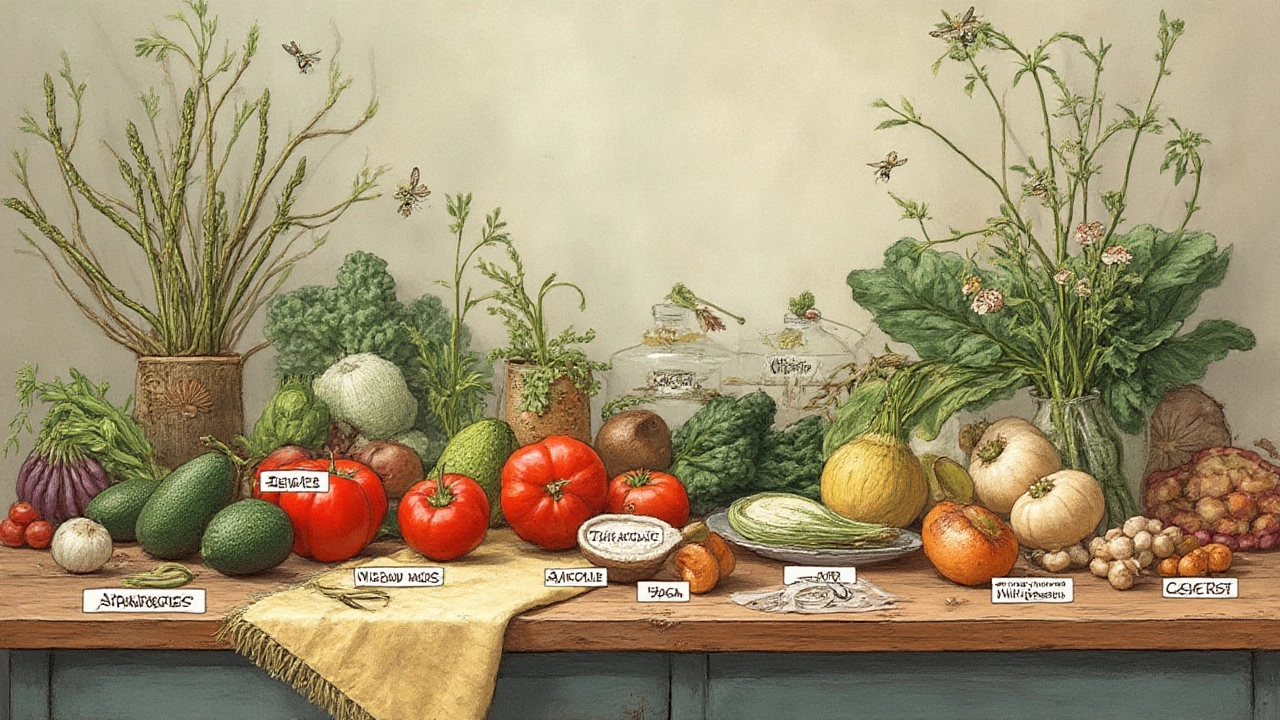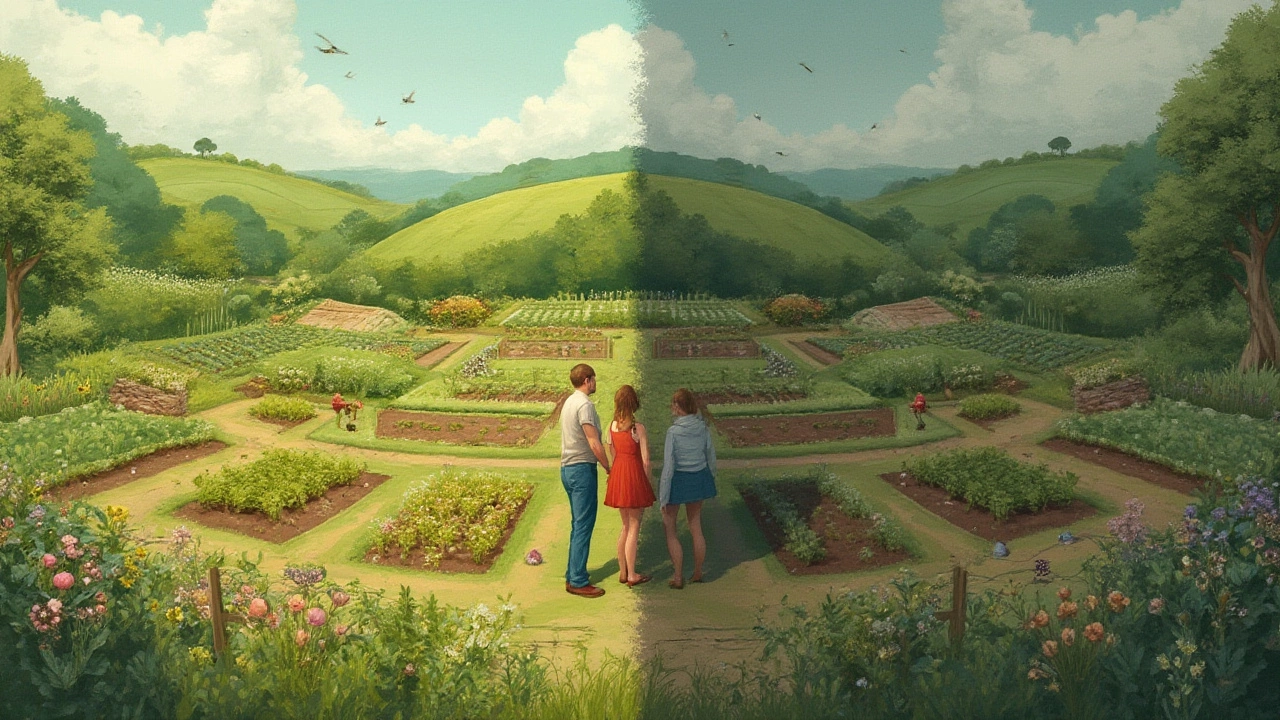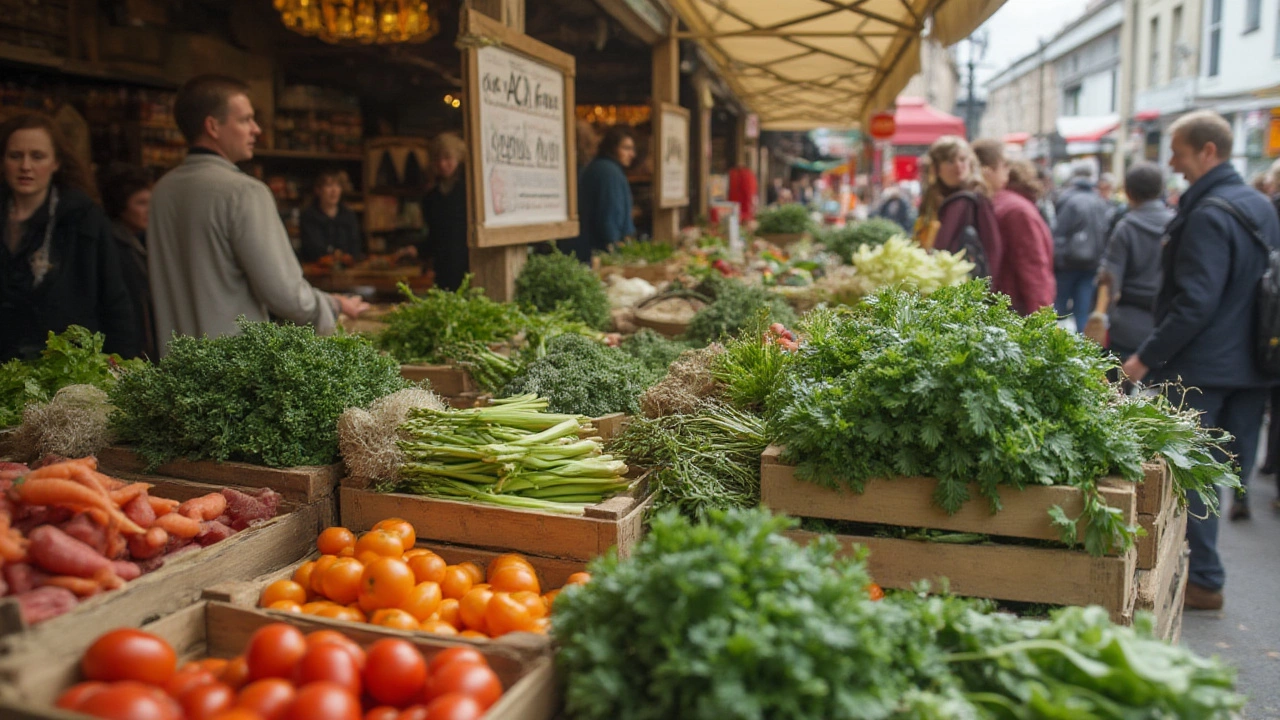If you think every vegetable is naturally vegan, let’s get real—there’s some weird stuff going on behind the scenes in the veggie world. Most people hear ‘vegetable’ and immediately file it under ‘safe for vegans’. But dig a little deeper and you’ll spot some sneaky exceptions. From unsuspecting avocados to everyday tomatoes, a few vegetables are grown or processed using animal products, making them controversial in vegan circles. Some folks swear it’s splitting hairs; others say it’s a matter of principle. Either way, if you care about living a vegan lifestyle, you’ll want to know where your veggies stand.
How Can a Vegetable Not Be Vegan?
So, what’s the deal—aren’t vegetables just… plants? Here’s the catch: while a vegetable itself might be plant-based, the way it’s farmed or processed might involve animals. Let’s talk about bees for a second. Commercial farming sometimes relies on pollinators brought in for the season, a practice called “commercial bee pollination.” This isn’t just a gentle partnership between plants and bees; millions of bees are trucked in, exposed to stress and dangerous pesticides, and many die in the process. For stricter vegans, this use of animal labor (and its impact on bee populations) can make certain veggies non-vegan.
Take avocados. In the U.S. and several other countries, avocados rely on bee pollination—done on an industrial scale. That means hives are moved across states just so we have guacamole year-round. Same goes for almonds (yes, not a vegetable, but useful for comparison). The practice is so widespread, it’s hard to be sure which crops are “vegan-safe” in this sense and which aren’t. It’s not just avocados; zucchini, butternut squash, cherries, passion fruit, and even some melons are also pollinated this way.
Some agricultural practices step even further into debate. Figs—a fruit, but the point rings true—depend on wasps for pollination, with insects dying in the process. Some mushrooms are grown using animal manure or blood meal as fertilizer. Sprouts may be rinsed in animal-derived agents. Then there’s the whole organic fertilizer game: bone meal, fish emulsion, or manure make an appearance in plenty of vegetable farms.
| Vegetable (or Fruit) | Animal Product or Involvement | Why Some Vegans Avoid |
|---|---|---|
| Avocado | Commercial bee pollination | Relies on managed bees and can lead to bee harm/death |
| Zucchini | Bee pollination | Similar reasons as avocado |
| Almonds (for comparison) | Bee pollination (mass scale) | High bee mortality during/after pollination |
| Figs | Wasp pollination (in wasp fig encounter) | Wasps die to pollinate, direct animal death |
| Mushrooms | Often grown in manure-based compost | Relies on animal-derived fertilizer |
| Tomatoes (sometimes) | Bone meal/fish emulsion fertilizer | Use of animal-based fertilizers |
Here’s a wild stat: Over 31 billion managed honeybees help pollinate agricultural crops in the U.S. every year. In California, 85% of commercial almonds depend on these bees. Each year, beekeepers report losses of 30-40% of their hives due to stress, disease, or exposure to agricultural chemicals. So, if you’re thinking ethics, there’s something to chew on.

The Hidden Animal Products in Vegetable Farming
Now let’s dig into the dirt—literally. Most folks don’t realize how often meat, fish, or animal byproducts end up in the soil that grows our veggies. Commercial fertilizers might include blood meal (from animal blood), bone meal (from ground animal bones), fish emulsion, crab shells, or feather meal. Organic farms aren’t immune—sometimes, they use even more animal-sourced stuff because synthetic fertilizers are off-limits.
Some fertilizers claim to be “plant-based,” but unless it’s clearly marked vegan, chances are high there’s an animal somewhere in the mix. Tomato, lettuce, and cabbage crops often rely on bone meal and animal manures. Even potato farmers sometimes use fish emulsion to get bigger yields. The logic for the farmer is simple: these inputs are nutrient-rich, natural, and often cheaper than synthetic ones. But for vegans who want a truly animal-free diet, it gets complicated.
Here’s another jaw-dropper: 90% of certified organic farms in the U.S. still use some form of animal manure or a blend containing animal byproducts. If a vegan’s ideals go beyond the kitchen, these industry stats can be unsettling. Some small-scale veganic farms (yes, that’s a term—it means “vegan organic”) try to use plant-only composts, rotate crops, and avoid animals completely. But those are rare and usually more expensive.
Let’s not forget about post-harvest handling. Some fresh veggies or packaged salads are sprayed with waxes or rinsed in preservatives that contain animal-derived ingredients like shellac (from insects), casein (from milk), or stearic acid (from animal fats). The labels won’t always tell you, either. Imported apples, for example, are often shiny thanks to a wax coating that could be animal- or plant-based; it’s hard to know unless you press the grower for answers.
- Check with local farmers if they use veganic methods. Farmers markets sometimes have stalls with plant-only produce.
- Wash produce thoroughly if you’re not sure what coating is on your veggies. Peeling can help avoid waxes.
- Look for ‘Certified Vegan’ produce, though it’s rare. Usually, the vegan status refers to packaged products, not ingredients.
- Support veganic growers if you find them. They’ll often be proud to advertise their methods if they don't use animal products.
- For fruiting vegetables like tomatoes and squash, ask about what kind of fertilizer the farm uses. Don’t be shy—it matters.
Why does all this matter? If the ethical reason you’re avoiding animal foods is to prevent harm, it’s worth knowing about the bigger picture. But unless you swoop straight for wild-foraged veggies or grow everything yourself, it’s almost impossible to avoid animal inputs 100% of the time.

Veganic Farming: Is It the Answer for Ethical Vegans?
Veganic farming sounds like a superhero version of organic gardening. Instead of using manure, blood, or bone from animals, veganic farms stick strictly to plant-based composts, green manures, and minerals. It’s a growing niche but takes a ton of effort and knowledge—without those animal-based boosters, plants sometimes struggle. But people are figuring it out. Places like the Vegan Organic Network in the UK and several farms in Canada and the U.S. are showing it’s possible.
Some cool techniques include cover-cropping (growing clover or peas to feed the soil), making compost from vegetable scraps and plant clippings, and rotating fields to keep soil healthy. Legumes often play the starring role, fixing nitrogen in the soil for the next plant to use. Plant-based fertilizers like alfalfa meal, rock dust, and composted veggies work wonders.
If you’re thinking about trying to grow your own veganic vegetables at home, start small. Use a compost bin filled with kitchen scraps, avoid commercial fertilizers, and skip pest control products unless you double-check the ingredients. Raised beds or container gardens are easy ways to get started—and you’ll learn by doing. Basil, lettuce, and radishes are forgiving for beginners. Just make sure you read up on which organic gardening supplies are vegan-friendly.
Here’s the reality: no food system is perfect. Wild-foraged foods might seem the ultimate answer, but even wild harvesting can disrupt habitats or steal food from local animals. The air, water, and even seeds might come into contact with animal-derived stuff no matter what. The goal for most ethical vegans isn’t perfection—it’s progress. If you can buy from veganic growers, awesome. If you can’t, don’t beat yourself up over it; just eat as plant-based as possible and support improvements in farming practices when you can.
- Ask around online—vegans are usually happy to share tips for finding veganic produce in your area.
- Grow something yourself, even if it’s just herbs on a windowsill. You control what goes into the soil.
- Keep pressure on supermarkets and farms to be transparent. The more customers ask about animal-derived inputs, the more likely change happens.
- If you’re feeling really inspired, check out documentaries or visit a veganic farm. Nothing beats seeing sustainable vegan agriculture up close.
The myth that every vegetable is vegan gets shattered pretty quickly once you see what happens on real-world farms. Not every vegan picks apart the story behind each carrot, but if you’re in it for the ethics, knowing the facts adds some depth to your grocery shopping. Here’s the bottom line: vegetables are about as close to vegan vegetables as you can get in most parts of the world, but if you want to dodge animal inputs entirely, there’s a bit of research and label-reading involved. If you ever wondered whether your guacamole was truly cruelty-free, you’re definitely not alone.

